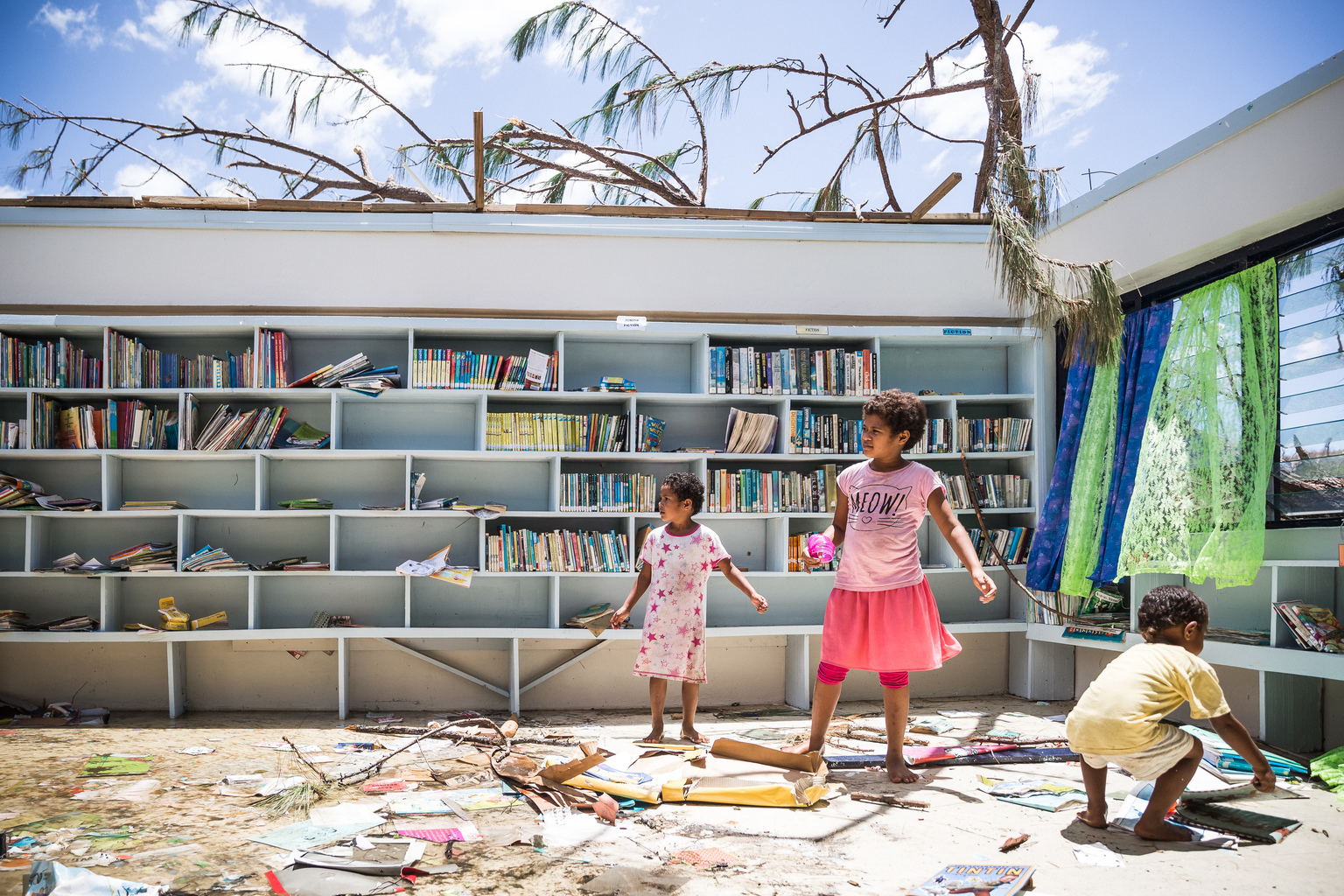(只有英文)新学年伊始 超过四成斐济儿童受颱风温斯顿影响
2016-03-01
© UNICEF/UN011706/Sokhin
(只提供英文版本)
SUVA/ HONG KONG, 1 March 2016 – More than a week has passed since Tropical Cyclone Winston ripped through Fiji, leaving a trail of devastation in its wake. The latest data indicates that an estimated 347,000 people (40 per cent of the country’s total population), including 120,000 children, are directly impacted by the second-strongest storm to ever make landfall (second only to Super Typhoon Haiyan in the Philippines).
“This is a truly nationwide disaster for Fiji” said UNICEF Pacific Representative, Dr. Karen Allen. “It is now clear that a staggering 40 per cent of Fiji’s children are very much at risk. The immediate and long-term implications for their health, safety, education and development are colossal.”
“We have met far too many children who have lost literally everything; their possessions, their home, the family’s crops that they depend on for food and possibly income, their school and their community health clinic. Many of these children don’t have safe drinking water, power or a roof over their heads. They need urgent and comprehensive assistance.”
One of these children is 13-year-old Adi from Yaqeta village in the outer Yasawa Islands. The terror of that night is apparent when she recalls the cyclone; "I saw our house starting to collapse. I grabbed my other and we run. I was so scared. We run from house to house three times. Now I am heartoken to see the house where I was born and raised in, in pieces."
“Sadly, Adi’s story is a common one,” says Dr. Allen. “What makes matters worse is that, in times of emergency, a school is often a child’s refuge - but so many schools have also been knocked out of commission.”
Fiji’s Ministry of Education has reported that at least 240 schools have also been damaged or destroyed. Many schools are also being used as temporary evacuation centres, sheltering families who have lost their homes.
“The Government of Fiji is to be commended for its very strong commitment and results in getting children back to school as quickly as possible,” Dr. Allen said. “UNICEF is working around the clock with the Ministry of Education to support this. On Monday 1177 schools were able to reopen but hundreds will face further delays due to damage – in the last week alone UNICEF has already supplied 60 temporary classrooms to most-affected schools – and many more are on the way.”
Each UNICEF temporary classroom kit includes a large tent and educational supplies sufficient for 40 students and teachers. They allow children and teachers to quickly return to school, to routine and a sense of normality in even the toughest of times. Temporary classrooms also help to keep children safe during the day, when parents and caregivers are focusing on recovery efforts and livelihoods.
In addition to supporting affected children to return to school, UNICEF is working closely with the Government of Fiji and development partners to ensure that affected children and their families have access to clean, safe drinking water, sanitation, health and protection.

© UNICEF/UN011703/SokhinChildren play in the liary of a school damaged by Cyclone Winston at the Nabau District School, Ra Province, Fiji.
UNICEF has already taken the following actions:
- More than 26,000 people in the most affected areas have been provided with water, sanitation and hygiene supplies to ensure safe drinking water and sanitation.
- 2,115 students at 23 schools have received education supplies, including temporary classrooms and learning materials. More supplies are en route to affected communities.
- Seven Emergency Health Kits, each serving a population of 1,000 people for 3 months, have been distributed to health facilities in worst-affected areas.
- As part of efforts to prevent the outeak of disease, 30,000 doses of Typhoid-Tetanus vaccine have been provided to the Ministry of Health.
- Extensive technical assistance has been provided by UNICEF’s 50-strong team based in Suva to the Government of Fiji, including embedding into three Government Ministries, as well as assessment and response missions.
The emergency response is scaling up as further supplies reach Fiji from UNICEF’s logistics hubs around the world.









